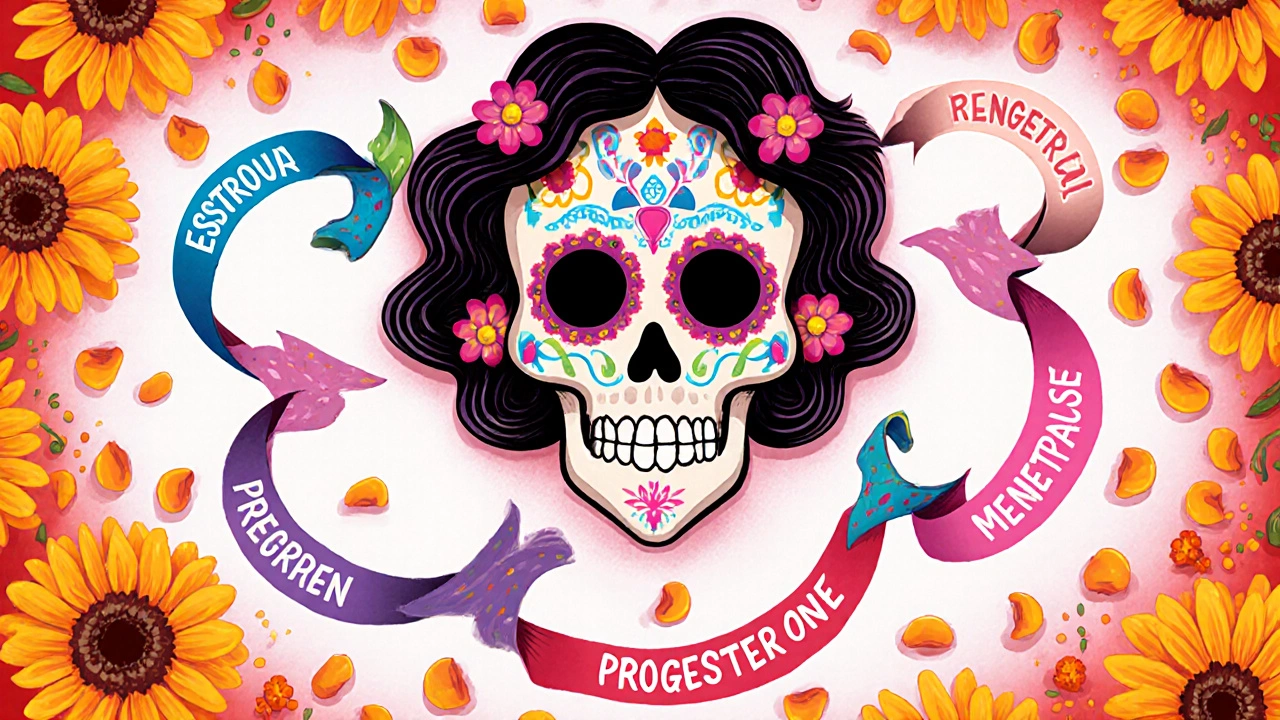PMS: Understanding Symptoms, Triggers, and Natural & Medical Support
When you feel irritable, bloated, tired, or overwhelmed just before your period, you’re not alone—this is PMS, a common hormonal condition affecting up to 80% of people who menstruate, marked by physical and emotional symptoms that start days before menstruation and fade once it begins. Also known as premenstrual syndrome, it’s not just "bad mood days"—it’s a real, measurable shift in brain chemistry and hormone levels tied to your cycle. Many think it’s all in your head, but science shows it’s linked to how your body responds to estrogen and progesterone changes after ovulation.
PMS isn’t one thing—it’s a mix of symptoms that vary from person to person. Some get severe cramps and headaches, others struggle with anxiety, food cravings, or brain fog. What’s common? These symptoms show up in the luteal phase, usually 5 to 10 days before your period. And while stress and poor sleep can make them worse, they don’t cause PMS on their own. The root is hormonal, and that’s why simple fixes like "just relax" don’t work. You need targeted support: magnesium for muscle cramps, vitamin B6 for mood swings, or even low-dose SSRIs if symptoms are debilitating. Some people find relief with birth control that stabilizes hormones, while others turn to herbal options like chasteberry. The key is matching your treatment to your specific symptoms, not guessing.
It’s also important to know when PMS turns into PMDD—premenstrual dysphoric disorder. That’s when mood symptoms like depression, panic, or anger become so intense they disrupt work, relationships, or daily life. PMDD is a clinical condition, not just "bad PMS," and it often needs medical attention. If you’ve tried diet changes, exercise, and supplements but still feel like you’re drowning in emotions before your period, you’re not failing—you might need a different approach. The posts below cover everything from how turmeric and black pepper affect hormone-related inflammation, to how specific nutrients help with bloating and mood, to how medications like clomipramine (used for OCD) can sometimes help with severe PMS symptoms too. You’ll find real comparisons, practical tips, and science-backed strategies—not fluff. Whether you’re looking for natural relief, drug alternatives, or just want to understand why you feel this way, the answers are here.
- Archer Pennington
- 9
How Hormonal Changes Cause Vaginal Irritation
Explore how hormonal fluctuations like estrogen drops or spikes trigger vaginal irritation, symptoms, and practical ways to find relief.
Read more
